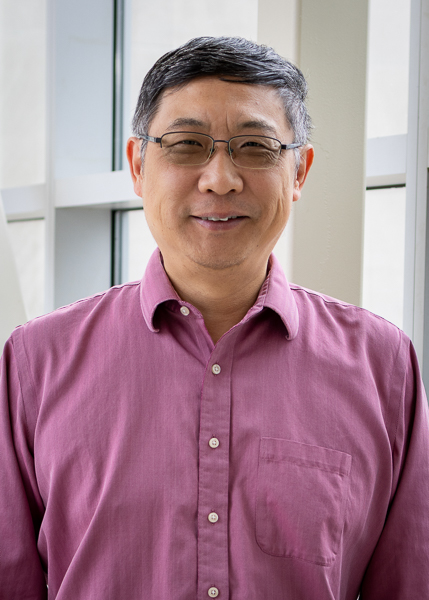Dr. Kefei Yu
Dr. Kefei Yu is an MGI Professor and one of our department's Associate Chairs. These are his answers to the Micro Biography questions:

How and when did you become interested in the field(s) of microbiology, genetics, and/or immunology?
I’ve always been interested in biology since I was a little kid, as my mother was a professor in a biology department. I spent a lot of leisure time in an environment filled with animal specimens and biology books. But it wasn’t until I was halfway through graduate school that I became enamored with molecular immunology, when I met with Michael Lieber whose cutting-edge research inspired my love for immunology.
Were there any particular people or events who were influential in your journey?
My Ph.D. mentor, Dr. Michael Lieber, kindled my interests in immunology. I first met him when he just moved to University of Southern California and was teaching a couple of lectures on V(D)J recombination, which is responsible for generating the diverse repertoire of lymphocytes in our immune system. It was such a fascinating topic that it immediately caught my attention.
How did you come to be a part of this department?
I was recruited in 2007 in a job search for immunologists. What a blessing it is to be able to join this exceptionally collegial and vibrant department!
What is your main role / research area right now and why is it important?
Research in the Yu lab focus on lymphocyte antigen receptor gene diversifications. These DNA rearrangements in the developing lymphocytes are mediated by the generation and repair of programmed DNA damages. These processes are not only essential for a competent immune system, but are also contributing factors to genome instability and tumorigenesis when they are dysregulated.
How do you see your role / research evolving?
I was trained as a biochemist and later became an immunologist. As my research scope continues to expand, I have been busy learning as ever as a student. Our research areas now include DNA repair, transcription and gene expression. Our research tools have also expanded to include cell biology, genetics, animal models and lately, advanced imagining techniques.
What types of activities are you involved in outside of work / research?
I enjoy travel, particularly going to national parks. I also enjoy watching sports, such as NFL, MLB and NBA, although I don’t actively participate in sports. ☹